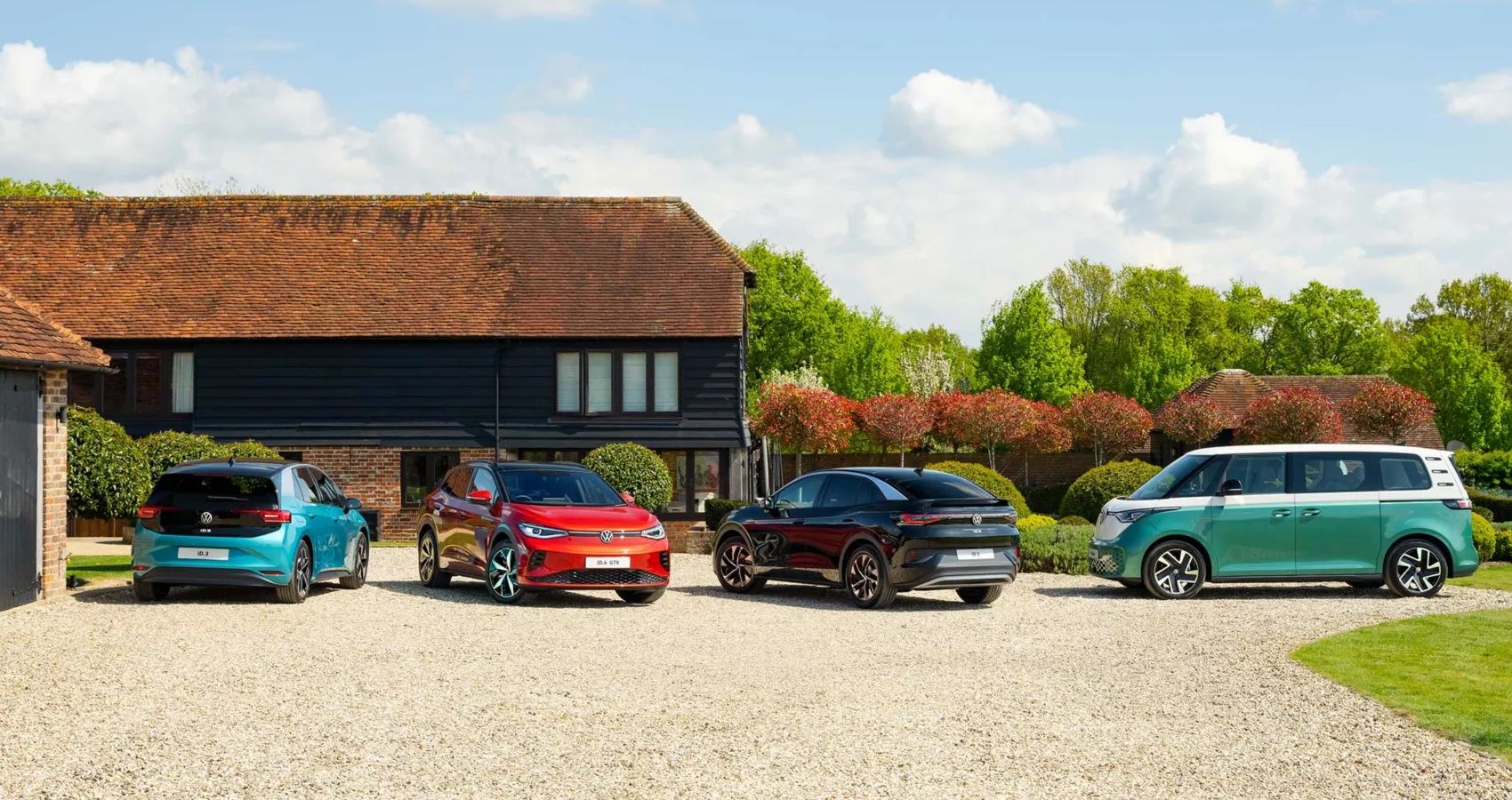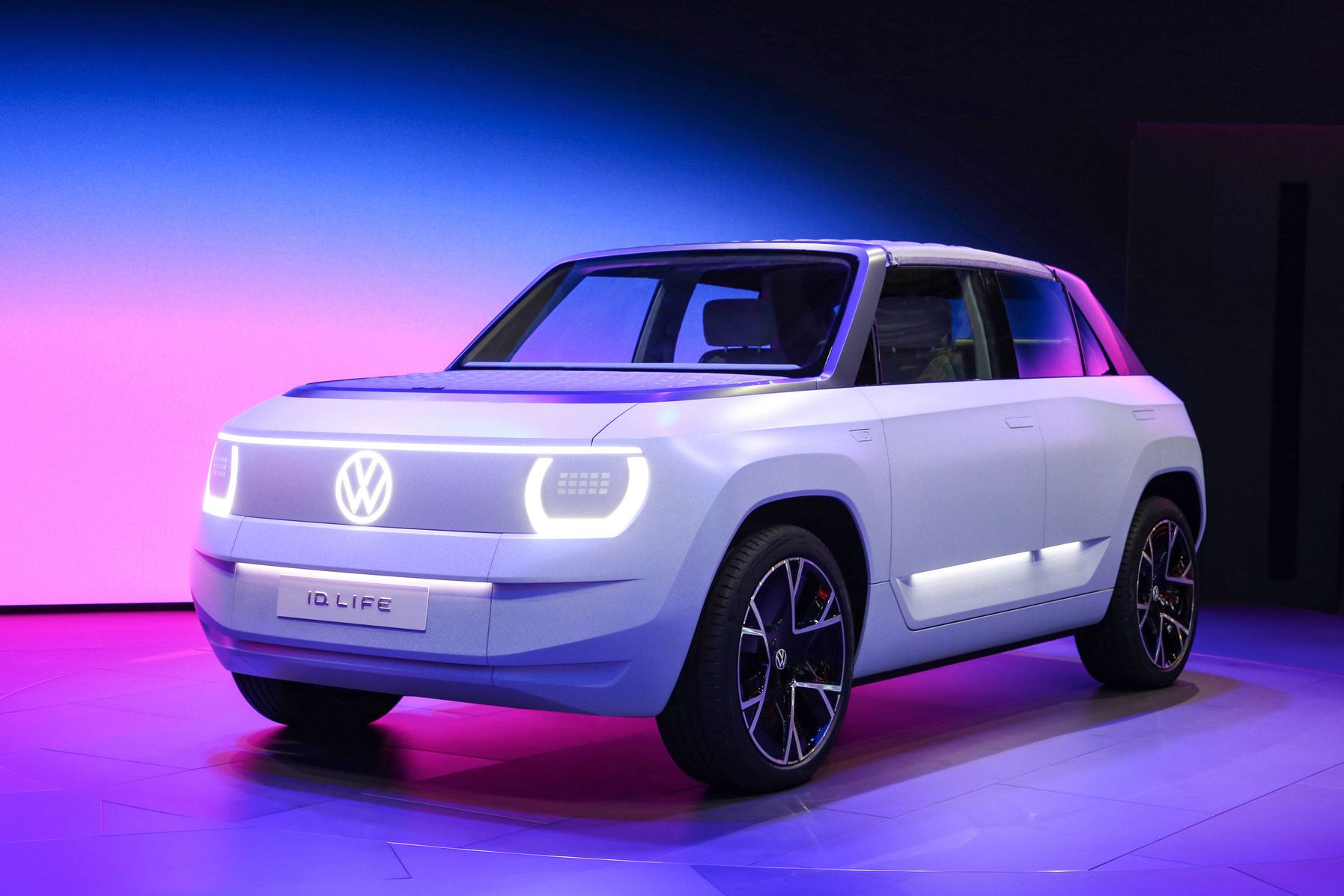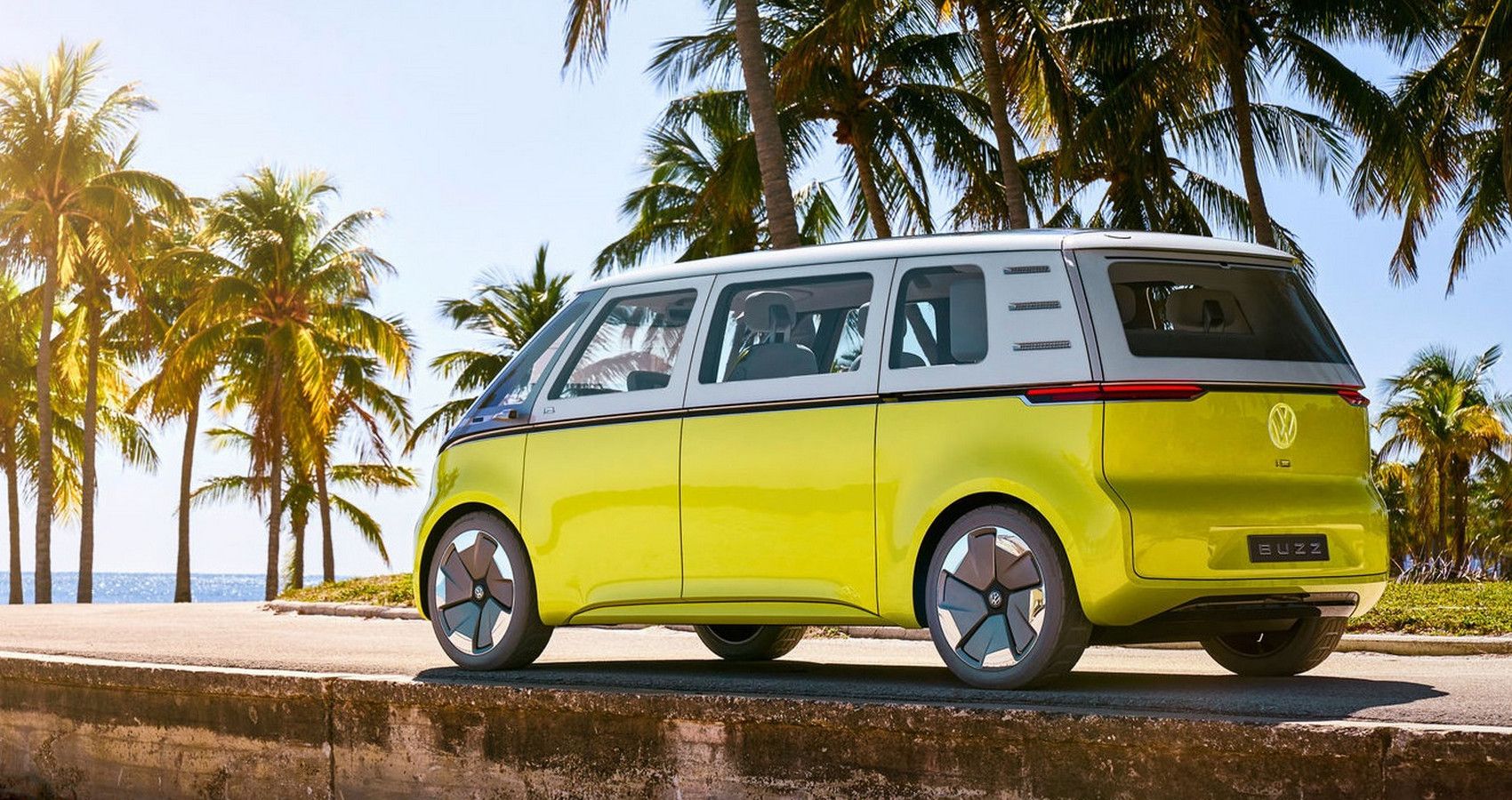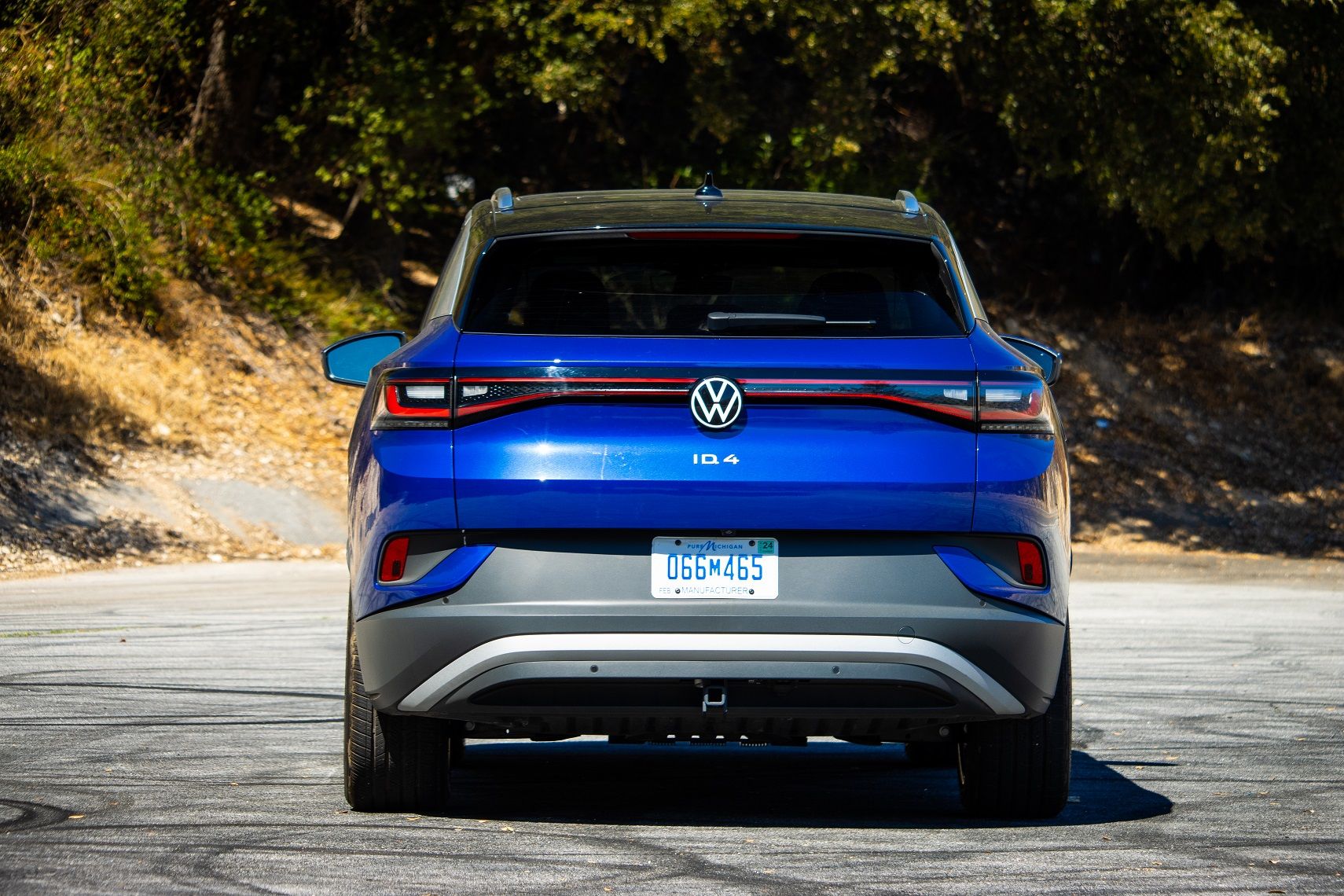Volkswagen and Audi's shared MEB platform will see improvements to produce 400-mile range affordable EVs. With cars from all the auto group's normal brands like Skoda and Cupra using this platform all of Volkswagen's EV eggs are in this basket. With the first car, the ID.3 arriving in 2019, the modular design platform now falls behind the emerging EV models like the Kia EV6 and Hyundai Ioniq 5. According to Volkswagen, the company is to invest €460 million into their Wolfsburg plant to enable the MEB+ platform. This revision will put Volkswagen EVs back into contention while maintaining affordable prices.
The ID range encompasses ID.3, ID.4, ID.5, and its coupe-like sibling the GTX, as well as the ID. Buzz. With this range of hatchbacks, SUVs, and utility vehicles the MEB platform has had great success. The lineup lacks a city car like the e-Up!, a sports car, and an electric Polo successor. But with plenty of numbers left to fill, VW will surely pad out its range. The MEB platform sees the batteries mounted in the underbody between the axles of the vehicles. This results in a wheelbase and track width that's easy to change across various sizes of vehicles. Resulting in the rather out-of-character strap line "Diversity in spite of unity".
The affordable EVs are to get range and technology to take on Tesla's Model 3 and the Kia EV6.
Volkswagen's MEB Proved Itself With The ID Vehicles
The platforms from the Volkswagen Auto Group hold major sway over the industry as a whole. Those cars that use the MQB platform include the vast majority of the smaller cars in the group's brands, including the Audi TT, Golf, and Seat Leon. On the larger side of things, the MLB EVO platform supports their large SUVs, including the Lamborghini Urus, Bentley Bentayga, Audi Q7, and the most humble Volkswagen Touareg. This platform-based design even led to the nearly identical Up!, Mii and Citigo.
With great success and the Volkswagen Group standing higher than ever before, even after the setback of Dieselgate, the company is to continue this design philosophy as they shift towards EVs. With the ID. range of vehicles Volkswagen uses the MEB, Modular Electric Drive System. According to Volkswagen, with "great flexibility, the platform designed exclusively for electric cars can be used to build a wide variety of models, from compact cars to vans.". This platform began with the ID.3 in 2019, the electric successor to the Volkswagen Golf. Over these past 3 years, the Volkswagen Auto Group produced 670,000 EVs with 500,000 of these built on the ID modular platform. Models like the Porsche Taycan and its sibling the Audi E-Tron GT use the J1 platform. But vehicles from Audi, Cupra, and Skoda use this platform, totaling 12 cars on the platform currently.
Volkswagen EVs Fall Behind The Competition
Keen to build on its platform's roaring success the company is to launch MEB+. Volkswagen announces they are to invest, " substantially in its further development in order to leverage the full potential of this successful platform and ensure that it remains competitive". The stated goal is to build the "best possible electric car at the best possible price". The platform-based design enables cost-efficient production, resulting in lower EV prices than the competition from the likes of Tesla and BMW. The ID.3, while not in the US, in other markets costs approximately $40,000.
However, this flagship ID.3 from Volkswagen, falls slightly behind in some specifications. The base-level car, with its 45kwh battery, only has a range of 205 miles. The top-of-the-range 77 kWh model has a range of 340 miles. The larger ID.4 costs $38,790 and at a base level only has a 208-mile range.
The defacto competition in the EV space for all manufacturers comes from Tesla. While the ID.4 might be without a direct SUV competitor from the brand, in terms of size and price the Tesla Model 3 acts as a rival. Starting at $46,990 the Model 3 offers a range of 272 miles. The slightly downmarket Kia e-Niro for the same price as the Touareg offers a marginally better 231-mile range.
By now Volkswagen understands that people buy their cars, most often not out of a burning desire for the VW badge. Perhaps some customers lust after the GTI and R models, but not a base specification Passat. Instead, their cars have to be the sensible and practical option. This is where the marque is to invest in the MEB platforms, improving range, refining cabin and storage space, and improving the general equipment of the vehicle.
Volkswagen Are To Introduce 400 Mile Range EVs To Rival Kia and Tesla
With the inherent modularity of their vehicle's designs, this not only means that more EVs can come from this one platform. However, each model can also get tailored for each customer. Volkswagen cites that for those just looking for a city car the 58kwh base battery seems sufficient.
But for those with long commutes and motorway journeys, the 77kwh batteries have a range approaching 300 miles. However, the brand looks set to introduce a 700-kilometer range vehicle. Around 435 miles, this would put VW's vehicles into contention alongside the Kia EV6 and Ioniq 5. Over the past year, the 400-mile range appears to be the gold standard in desirability for customers with range anxiety. This mid-life improvement to the platform goes without an announcement date, but with the €460 million investment in the Wolfsburg factory due before 2025, these improved EVs can only be just around the corner.




